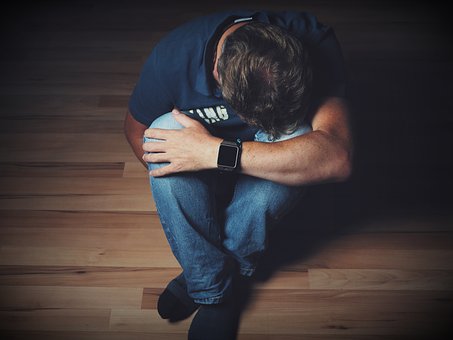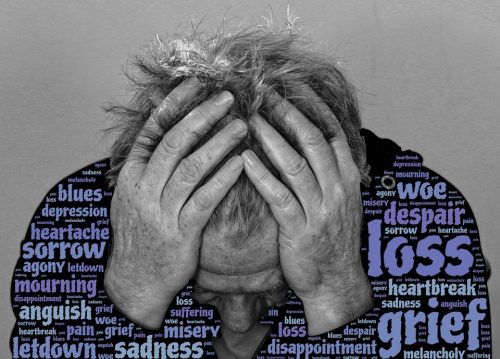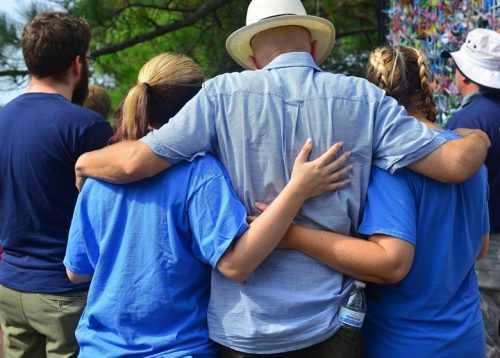
Source: pixabay.com
Denial, anger, bargaining, depression, and acceptance—these are the universally accepted stages that individuals experience and hopefully survive when feeling grief. Managing grief is a topic that plenty of people stay away from. It is not usually a teachable skill or an action that we practice regularly. What we can only rely on are our instincts and observations of people who have been through the loss of someone they loved.
The Harsh Effects Of Grief
“Grieving is a personal and highly individual experience. How you grieve depends on many factors, including your personality and coping style, your life experience, your faith, and the nature of the loss. The grieving process takes time.” That is according to Kevin Stevenson, LMHC, MCAP. Emotions can overwhelm even the best of us when suffering from the loss of someone loved. Sadness, loneliness, and helplessness are but a few of the many adverse effects of grief. Although it is a natural process that has its beginning and end, it can deal a significant blow to your longevity and mental health. You can manage it in different ways, but the symptoms and effects stay mainly the same. Below are several bad results that it may cause.
- Substance abuse or addiction is arguably the worst and most common possible outcome caused by grief. Drugs and alcohols are easy escapes from a world filled with pain and tragedy, but they deal with deadly consequences to your social, emotional, and physical health. As Alicia H. Clark, PsyD elaborates, “Rooted in a belief that we can’t handle how we are feeling, believing our anxiety is dangerous just might be the most damaging approach we can take to coping with it.”
- Depression is a mood disorder that causes low energy levels, a permanent feeling of loneliness, and a lack of interest or passion in things provided by life. Depression, when left untreated, can be harmful and fatal.
- Anxiety is a prevalent feeling, but it is difficult when it becomes chronic. Heightened alertness and levels of fear will lead to an increase in heart rate and blood pressure, which can ultimately lead to heart-related issues.
- “No one is born knowing how to cope with the wave of grief that follows the death of someone we love. As a psychotherapist who’s worked with many grievers, I know when faced with overwhelming grief, many people feel like they are alone in what they’re experiencing and can feel like they’re going crazy.” Debbie Augenthaler, LMHC, NCC once said.
- Grief is conceptually psychological but is fully capable of negatively affecting your immune system. If the immune system underperforms, your body will become a gateway to a host of diseases and ailments.

Source: pixabay.com
Exercise Does Help
When you exercise, you spur the production of endorphins, hormones that relieve stress, and grant a positive attitude. Studies have proven that it also lowers the risk of heart-related ailments, diabetes, and arthritis. Exercise improves the function of both your nervous system and immune system, reducing the risk of negative thoughts and actions and sickness. “Regular exercise helps you relieve stress and may help prevent or reduce depression. Aerobic exercise and yoga have been found to be particularly beneficial for reducing stress and improving mood,” says ADAA member Stephanie Kriesberg, PsyD.
In essence, committing to exercise will give you boosts in all aspects of life. It keeps you away from evil thoughts and behaviors. It also improves your self-confidence and is a clean and safe method you can use to battle your inner demons when going through the grieving process.
- Consistency is key. As long as you are committed and constant in performing physical activity, the intensity will not matter. Stick to your schedule or routine, and the benefits will come.
- Make it convenient. You do go outdoors or enroll in a gym to exercise. Try to find ways to make your exercise routine accessible and easy to do. Bodyweight workouts and yoga mats can go a long way.
- Engage your senses. Appreciate the little things in life. When you go out for a run, listen to the chirping of the birds or the rustling of the leaves. When lifting weights, try to focus on your muscles or listen to music.

Source: pixabay.com
Grief is a natural response that we feel when we have lost loved ones. However, if we settle with the grieving process, we develop unhealthy habits and tendencies. Exercise can help redirect our feelings and energy to something more positive. If we commit to positivity, we create positivity within ourselves and become stronger and more resilient as a result.




















